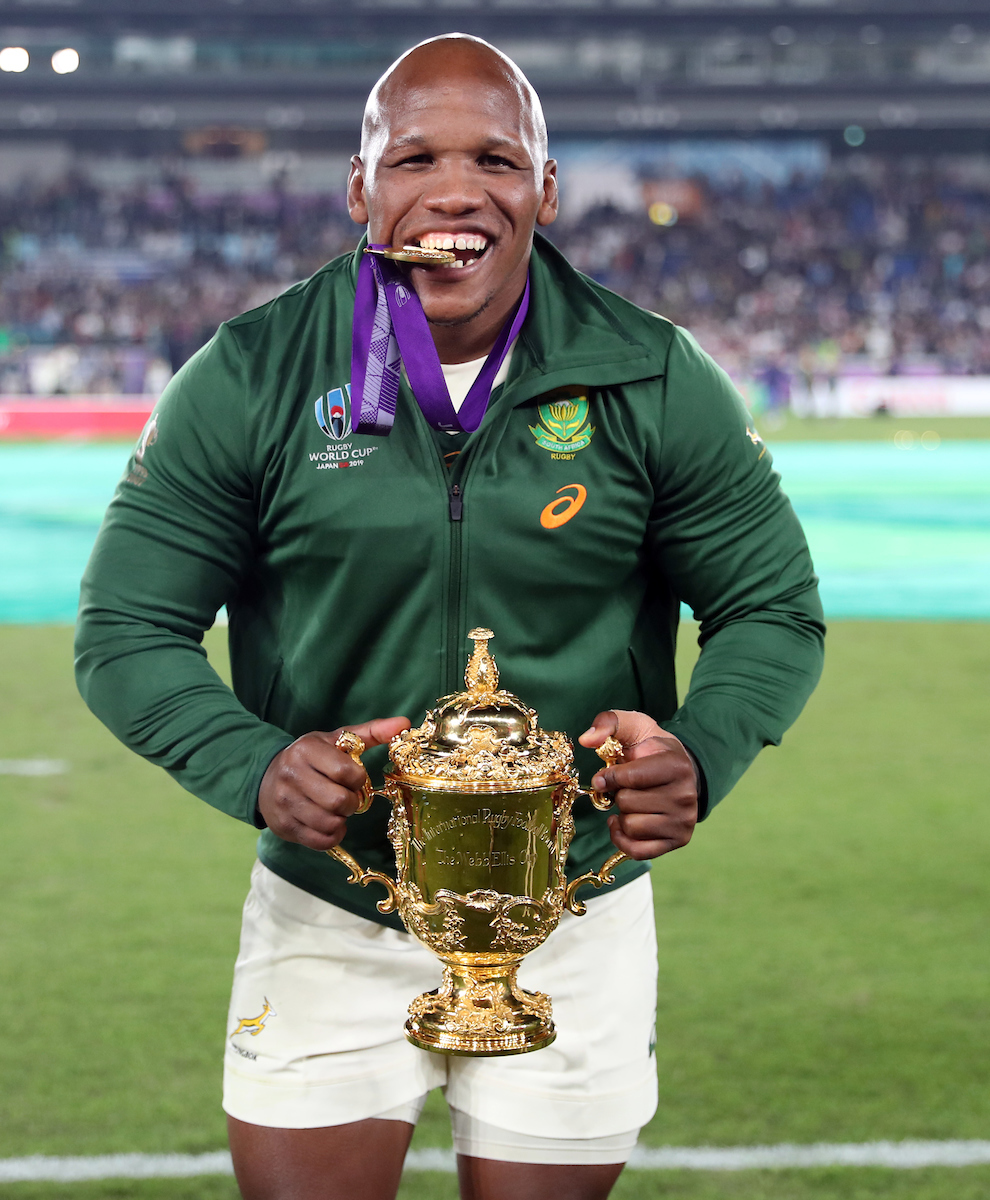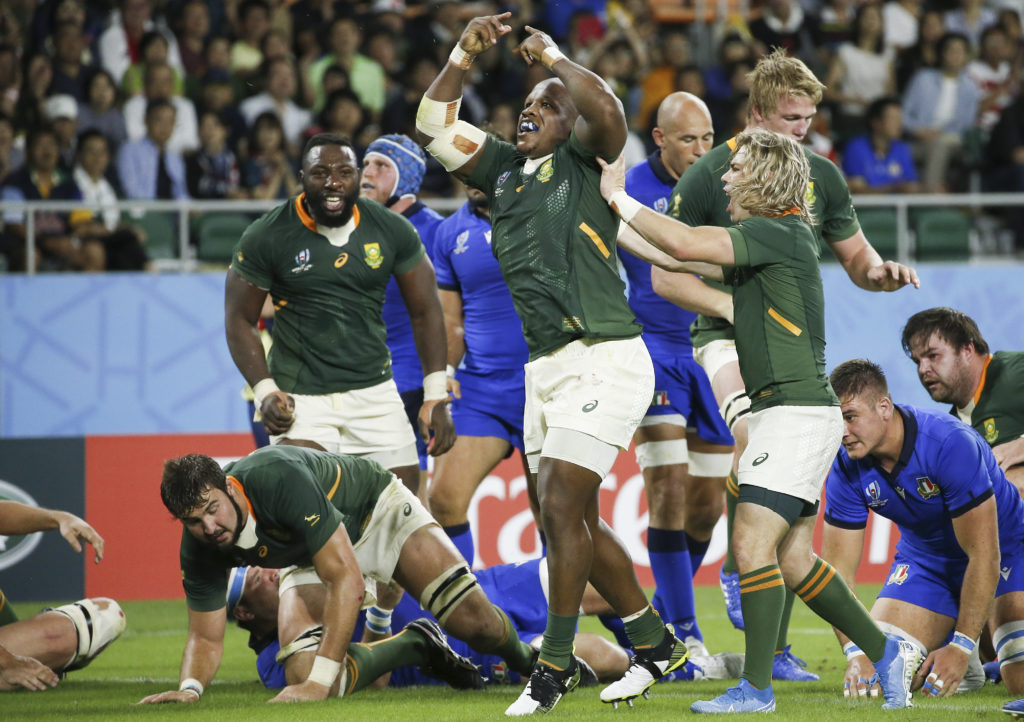In the first of a three-part series on Bongi Mbonambi, the Springbok hooker reveals how his upbringing and early experiences with professional coaches shaped his combative mindset. JON CARDINELLI reports.
Bongi Mbonambi’s booming laugh fills the small coffee shop that sits in the shadow of Newlands Stadium. He smiles when I ask him about his World Cup winners’ medal and what it means to him in a career that had – until recently – been characterised by struggle and disappointment.
Mbonambi appears content. Whereas past coaches have fixated on the size of his body, Rassie Erasmus and Jacques Nienaber have acknowledged the size of his heart. Mbonambi was picked ahead of Malcolm Marx to start at hooker in the World Cup playoffs against Japan, Wales and England last year, and on each occasion Erasmus cited Mbonambi’s appetite for combat as an asset.
Where does that bulldog tenacity come from? Mbonambi reveals how his approach to rugby and to life has been shaped by his upbringing in the Free State and subsequently by his many challenges and setbacks.

‘My father is a policeman and my mother is a nurse. We had a military-style upbringing,’ he tells me.
‘My siblings and I were taught to work hard for what we want from a young age. We grew up speaking Sotho, but my mom and dad wanted us to attend decent English- and Afrikaans-speaking schools and ultimately to have a better shot at a career.
‘I often think back to how hard they worked just to give us that chance in life. It puts things in perspective and makes you realise why giving up during times of stress is not an option.
‘We all played a bit of sport and we had that competitive streak,’ he continues. ‘My dad dabbled in boxing and baseball and my mom played tennis.
‘My older brother Mpiliso was a handy soccer player, while my younger sister Mpumi went on to play netball for the University of Johannesburg. She developed a reputation for never giving an inch.’
Mbonambi started to take his rugby seriously at the age of 16. When a couple of Vodacom Bulls scouts approached him at the Grant Khomo Week and asked for his contact details, he gave them his parents’ landline number because he didn’t have a cell phone.
‘When I got home, my mom said that Nico Serfontein and Tim Dlulane were trying to reach me. We travelled to Pretoria to meet with the Bulls, who were interested in putting me in a school up there and eventually recruiting me to the union.
‘My parents were thrilled with the fact that it was a full scholarship and ultimately a chance at a career. It wasn’t a hard choice to make,’ he adds. ‘If I’d stayed in Bethlehem I may have gone down the wrong path and joined a gang. My parents were glad to see me getting out of there and following my passion.’
Mbonambi didn’t fit the mould of an archetypal Bulls forward, though. When he graduated to the Bulls U19 side, he noted how many of the players were bigger and faster than him. What set him apart from the others was his work rate.

‘There was never a time when I doubted my ability, even when some of the coaches were telling me I’d never progress beyond the age-group level.
‘One day, I challenged one of those coaches by asking, “Why would you say something like that?” He told me my size would count against me in professional rugby.
‘It really hurt to hear that, but then I managed to turn it into a positive. When people tell me I can’t do something it makes me try even harder.
‘It’s happened many times over the course of my career, and on every occasion I’ve just reminded myself that I’ve been in the situation before. I’m used to dealing with people doubting my ability.’
‘Ultimate Warrior’ first appeared in the March edition of SA Rugby magazine. The second instalment of the three-part series – in which Mbonambi opens up about a career-threatening appendectomy and the white lie he told Rassie Erasmus before the Test series against England in 2018 – will be published on Thursday 12 March.
Photos: BackpagePix/Steve Haag Sports/Hollywoodbets/Gallo Images






